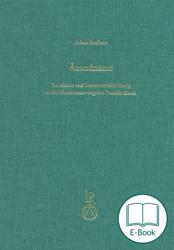This work is an edition and literary-critical study of a Manichaean text in Sogdian known as the Āzandnāmē, or Parable-Book. The first part is a new and expanded edition of the Sogdian text with English translation and philological commentary. The second part, and main contribution, is a literary-critical study of the individual parables of the Āzandnāmē as well as of the genre of parables with the framework of Manichaean literature as a whole.
The Manichaean communities in Turfan (in modern-day Xinjiang, China) produced numerous texts in many languages, including Sogdian, an eastern Middle Iranian language. The present work is an edition and literary-critical study of the longest continuous Manichaean text in Sogdian, known as the Āzandnāmē, or Parable-Book. The Parable-Book preserves parts of three parables which illuminate various aspects of Manichaean teaching by means of a narrative followed by an explanation. A new and expanded edition of the Sogdian text, with English translation and philological commentary, forms the first part of this study.
Along with sermons, hymns, and confessionals, parables were one of the major genres of non-canonical texts produced by Manichaeans in Central Asian communities, surviving in Middle Persian, Parthian, and Old Turkic, as well as Sogdian. In the second part of this study, a new approach to the study of Manichaean parables is presented, taking into account their intertextuality as part of a genre that can only exist in interdependence on all other genres of Manichaean literature. This approach allows new light to be shed on the text of the Āzandnāmē while also investigating how and for which purposes the parables were produced and used.
This work is intended for specialists of Manichaeism and/or Sogdian philology, as well as those with interests in Iranian philology or religions in Central Asia more generally.
Dr. Adam Benkato was born in Houston, Texas. Having completed a B.A. in History at the University of Southern California (2009), he went to SOAS to pursue Iranian Philology, for which he was awarded an M.A. (2010) and Ph.D. (2015). From 2015-16 he was a Researcher at the Turfan Studies Project, Berlin-Brandenburg Academy of Sciences, and is presently a Humboldt Research Fellow at the Freie Universität Berlin.
The series Beiträge zur Iranistik was founded in the 1960s by Georges Redard and subsequently edited by Nicholas Sims-Williams from 1997 to 2020; the present series editor is Agnes Korn.
The series publishes works on the languages of the Iranian branch of Indo-European. The focus is on linguistics, including grammars, dictionaries, text editions, philology as well as diachronic and synchronic studies of linguistic topics. Neighbouring fields such as literature, archaeology and anthropology are likewise represented. The languages of the series are English, German and French. The Beiträge zur Iranistik are represented in libraries internationally and are widely used standard works of Iranian studies.


 Inhalt
Inhalt